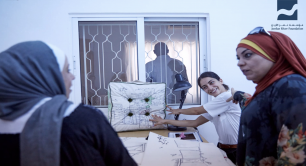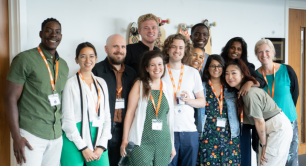The Impact World this Week: 18 January 2024
Your quick guide to the news in social enterprise, impact investment and mission-driven business. This week featuring World Economic Forum updates, good news about impact investments in Japan, plans to celebrate Suzanne Biegel's life and more.
Our key news stories
- Oxfam throws weight behind social enterprises and cooperatives as global inequality grows still further
- New research: there are 10m social enterprises worldwide, reveals Global Alliance for Social Entrepreneurship
- The Social Innovators of the Year 2024: the Schwab Foundation awards changemakers who are ‘reimagining broken systems’
Plus: other stories that caught our eye
Global: Several reports and initiatives were launched during the World Economic Forum Annual Meeting in Davos this week by the Schwab Foundation’s Global Alliance for Social Entrepreneurship. The Corporate Social Innovation Compass: Accelerating Impact through Social Enterprise Partnerships aims to demonstrate how companies can effectively engage with social enterprises. The Rise Ahead Pledge has been signed by 12 companies so far, including SAP, Ikea and Sanofi, committing to invest in social innovation. With Microsoft and EY, the alliance launched an initiative on AI for Social Innovation which aims to mobilise support for social innovators to adopt AI for positive impact.
UK: The House of St Barnabas charity and members’ club in London has closed due to financial challenges following the pandemic and then a collapsed ceiling. The enterprise, which supported homeless people into employment, was founded in 2013 and, over the last decade, 307 people have graduated from its programmes. The building will be held in trust for charitable purposes. A statement said: “With our costs growing substantially faster than income, our business model is simply not sustainable in the current economic environment and we have had too many rainy days to ride it out.”
- Watch more: The Pioneers Post camera crew was there as The House of St Barnabas opened A legacy for London’s homeless
Global: There are 753 private asset impact funds primarily operating in developing countries, with a market size of US$95.3bn, according to a new report. Tameo's Private Asset Impact Fund Report 2023 says of the people supported by the market, 61% live in rural areas and 58% are women. The report says the market grew 5.9% in 2022, but forecasts -0.8% for 2023.
England: Big Issue Invest is calling for applications from social ventures and charities across England for its £15m Impact Loans England (ILE) programme. ILE aims to provide early-stage social businesses and charities with an account manager and blended loan/grant products that can help them survive seasonal fluctuations in income in the UK’s post-coronavirus economy. The Fund intends to invest in a wide range of geographies across England, focusing especially on organisations serving impoverished areas and marginalised communities such as Black, Asian, minority ethnic and/or disabled people.
UK: Heading for Change, the US$3.5m climate endowment set up by the late gender-lens investing pioneer Suzanne Biegel, is inviting people to take part in a week-long virtual gathering celebrating her life and work. Celebrate and Catalyse Change: Suzanne Biegel Week will happen during the week commencing 29 January and is the organisation’s way of providing an online space for anyone who wishes to commemorate her life. Click here to sign up.
Asia-Pacific: Earth Company, which supports trailblazing changemakers across the Asia-Pacific, has announced the members of its Impact Heroes Class of 2024. After a five-month process of assessing and shortlisting candidates from a pool of 95 applicants, its team selected nine finalists for this year’s cohort of changemakers to support. These individuals will take part in the Lead-to-Regenerate (L2R) Changemakers programme, which will provide them with skills, mentorship and opportunities for growth over the next 12 months.
Japan: Impact finance assets under management in Japan tripled to JPY10.7tn in 2023 from JPY3.85tn the previous year, according to the Impact-driven Financing Initiative Progress Report 2023 published this week by the Japan Social Innovation and Investment Foundation. The researchers attribute the rapid growth to major financial institutions expanding their impact finance investments as well as new financial institutions getting involved.
Figure of the week: C$85m is the spend directed to date to social enterprises from the construction of a new hospital in Vancouver, Canada. The St Paul’s Hospital project is bound by the city’s mandatory Community Benefit Agreements policy for large development projects which means that the builder, PCL Construction, must hire at least 10% of the workforce from local ‘equity deserving groups’, spend 10% locally and spend 10% via social purchasing. Elizabeth Chick-Blount, CEO of Buy Social Canada, said: “Large construction projects represent a massive opportunity for social procurement through Community Benefit Agreements. These projects often have multiple subcontractors and suppliers that could be social enterprises…That’s why CBAs are growing in popularity and application in Canada, Scotland, Australia and hopefully more countries soon.”



